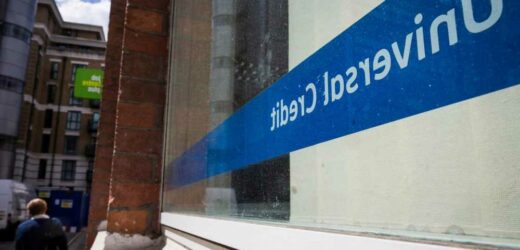BRITS will be looking forward to the August bank holiday this month – but if you claim benefits, it could affect the day you’ll be paid.
All benefit claimants who are due to be paid on Monday August 30 will get their money earlier than usual.
This includes those claiming Universal Credit, personal independence payments (PIP), employment and support allowance (ESA) and more.
This year, the summer bank holiday for most of the UK falls on Monday, August 30.
We explain all you need to know about when to expect your money:
How benefit payments are affected by the bank holiday
If your benefit payments are due to fall on the bank holiday Monday, you'll automatically be paid earlier.
The government says you should usually receive your benefits on the working day before the bank holiday.
This means that you will be paid on Friday 27 August.
Will I get paid the same?
Although the day you’ll get paid will change if your payment is due on the August bank holiday, it won’t affect how much you’ll get.
You’ll still receive the same amount – despite being paid earlier on the Friday.
It also shouldn’t affect how much you get paid next time around.
The full list of benefits that could be affected by the bank holiday
IF you were expecting to receive your payment on the August bank holiday, then you’ll get it on Friday 27 August instead.
Here’s all the benefits that will be paid earlier than usual – and how often they are usually paid:
- Attendance allowance – usually paid every four weeks
- Carer's allowance – usually paid every four weeks
- Child benefit – usually paid every four weeks (weekly for some parents)
- Disability living allowance – usually paid every four weeks
- Employment and support allowance – usually paid every two weeks
- Income support – usually paid every two weeks
- Jobseeker's allowance – usually paid every two weeks
- Pension credit – usually paid every four weeks
- Personal independence payment – usually paid every four weeks
- State pension – usually paid every four weeks
- Tax credits (such as working tax credit) – usually paid every four weeks
- Universal Credit – every month
How much you'll usually get paid depends on what type of benefit you claim and your individual circumstances.
If you think you're eligible for benefits and missing out, then we've explained how to check which benefits you could claim.
How will it affect me?
Although being paid earlier might appear to be a good thing, remember too that you’ll also need to make your cash stretch an extra day the following month.
Make sure to factor this into your budget for September.
You don’t need to do anything – the Department for Work and Pensions will pay you earlier automatically.
But if your payments are late over the bank holiday, make sure to check the payment date on your award notice and contact your bank before calling HMRC.
Will my payment dates be affected on other bank holidays?
It all depends on when your payment is due – and whether it lands on a bank holiday.
The next bank holiday is over the Christmas period – there are three to take into account which are December 27, December 28, and January 3.
If you're due to receive these your benefit payments on those days, then they will be paid the working day before those dates.
Here's when claimants received their Christmas benefit payments last year.
Millions of Brits claiming Universal Credit are missing out on a bonus worth £1,200 from Help to Save – here's how to get it.
Millions on Universal Credit have not yet been sent letters warning about the benefits cut that’s just weeks away.
Martin Lewis has urged Brits who were turned down for Universal Credit last year to re-apply now.
Source: Read Full Article



